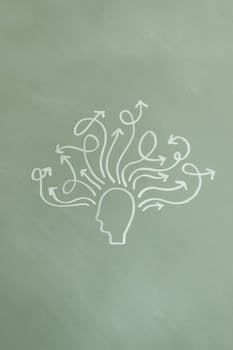What is mental processes?

What is mental processes?
Understanding mental processes is crucial for grasping how we think, feel, and behave. These processes form the foundation of human cognition and significantly influence our daily lives. Whether you’re looking to improve your productivity, enhance your learning, or develop better communication skills, knowing how mental processes work can be incredibly beneficial.
Definition and Overview of Mental Processes
Mental processes refer to the internal functions of the mind that enable us to carry out tasks such as perception, memory, reasoning, and emotional responses. They are the cognitive operations that occur in our minds, allowing us to interpret information and make decisions. These processes can be broadly categorized into several types, including cognitive, emotional, and perceptual processes. Understanding these types is essential for anyone interested in personal development and effective communication.
For a deeper dive into the definition and functions of mental processes, check out this overview on ScienceDirect.
Types of Mental Processes
When we talk about mental processes, we can distinguish between various categories:
- Cognitive Processes: These include thinking, reasoning, problem-solving, and decision-making. Cognitive processes allow us to process information, draw conclusions, and perform tasks.
- Emotional Processes: Emotions play a crucial role in how we react to situations. They can influence our decisions, behaviors, and interactions with others.
- Perceptual Processes: These processes help us interpret sensory information and understand our environment. They allow us to perceive colors, sounds, textures, and more.
Each of these processes interacts with one another, creating a complex web of human experience.
Importance of Mental Processes
Understanding mental processes is vital for several reasons:
- Personal Development: By analyzing how you think and feel, you can identify areas for improvement. This insight can lead to better decision-making and emotional regulation.
- Effective Communication: Recognizing how mental processes work can enhance your interactions with others. You’ll become more attuned to how people think and feel, facilitating better conversations and relationships.
To explore more on why mental processes matter, you can visit Psychology Today.
Mechanisms Behind Mental Processes
Mental processes are not just abstract concepts; they involve specific mechanisms that allow us to function effectively in our daily lives. Key mechanisms include attention, memory, and reasoning.
Role of Attention in Mental Processes
Attention is the gateway to mental processing. It dictates what information we focus on and what we ignore. Without effective attention, our ability to think critically and make sound decisions is severely hampered. For instance, when you’re studying for an exam, your ability to concentrate on the material directly affects how well you can learn and remember it.
Memory Systems and Their Impact
Memory is another critical component of mental processes. It can be broken down into several systems:
- Short-term Memory: This is where information is temporarily held for immediate use. It’s like a notepad in your brain.
- Long-term Memory: Here, information is stored more permanently. This includes everything from facts to personal experiences.
- Working Memory: This system helps you manipulate and process information in real-time, like solving a math problem in your head.
Understanding these memory systems can significantly enhance how you approach learning and retention.
Applications of Understanding Mental Processes
The knowledge of mental processes has practical applications in various aspects of life.
Mental Processes in Productivity Techniques
By recognizing how mental processes work, you can implement techniques that boost your productivity. For example, adopting a focused approach to task management can help you prioritize effectively and avoid distractions. Techniques such as the Pomodoro Technique, which involves working in short bursts followed by breaks, leverage the mechanisms behind attention and memory.
Impact on Personal Development and Study Habits
Understanding your mental processes allows you to tailor your study habits for maximum effectiveness. By identifying your learning style—whether visual, auditory, or kinesthetic—you can develop techniques that align with how you naturally process information. This alignment enhances your ability to grasp and retain knowledge, leading to higher academic performance.
Conclusion: The Significance of Mental Processes
In summary, mental processes are the foundation of our thoughts, emotions, and behaviors. By gaining a clearer understanding of these processes, we can enhance our productivity, improve our personal development, and communicate more effectively. Whether you’re looking to enhance your learning or simply navigate daily life more smoothly, recognizing the role of mental processes will undoubtedly benefit you. Engaging with these concepts can lead to significant improvements in various areas of your life, from academic success to personal relationships.
Understanding mental processes isn’t just an academic pursuit; it’s a pathway to better living. Start exploring your own mental processes today and see how they shape your world!